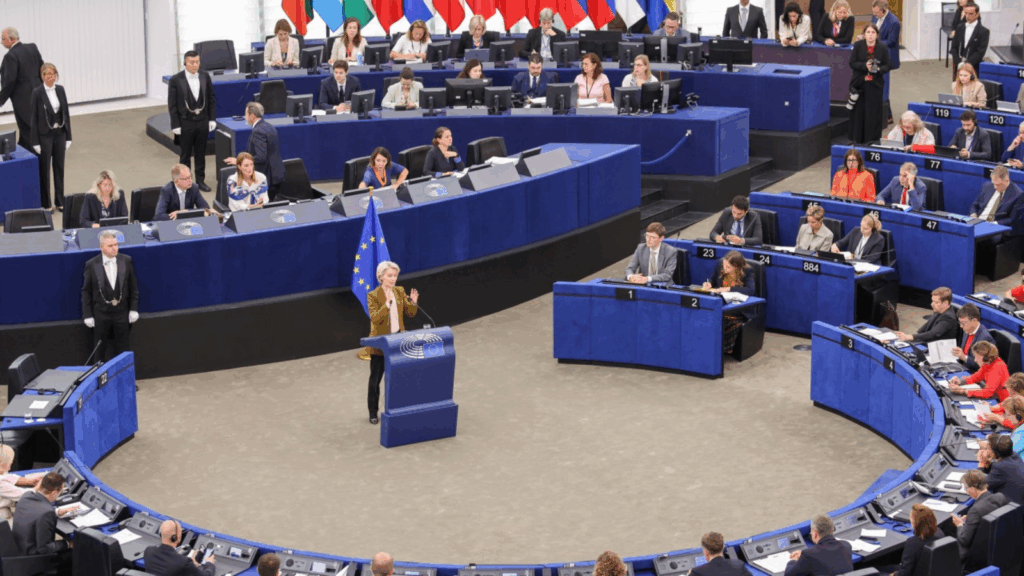First Call – Green at Heart Project Call for Proposals: Financial Support for Social Economy SMEs (Netherlands, Austria and Spain)
Background: Green at Heart helps socially-focused SMEs in the Netherlands, Austria, and Spain to develop a roadmap towards all aspects of sustainability – starting with insight into current practices. This call invites socially-focused SMEs in the Netherlands, Austria, and Spain to submit sustainability action plans based on recommendations from the Go Sustainable or CTI tools. The top 60 proposals will receive EUR 8 000 00 in funding to implement their plans. An additional EUR 667 00 will be granted to SMEs attending the Vienna bootcamp to cover travel and accommodation costs.
Opening date: 26 August 2024
Deadline model: single-stage
Deadline dates: 27 October 2024 23:59 (Brussels time)
Expected duration of participation
SME applicants must complete the project activities within 8 months maximum
Total funding available: EUR 500 000 00
Application format:
PHASE 1: All companies that meet the criteria receive access to the ESG tool and three guiding webinars. Up to 30 manufacturing companies also receive access to a circularity assessment tool with one guiding webinar and one 1on1 results session.
PHASE 2: All participants of phase 1 may submit a sustainability action plan built on their results. In October, up to 60 selected SMEs will each receive a grant of up to EUR 8 000 00 to put their plan into action.
PHASE 3: 15 selected entrepreneurs will be invited to attend an entrepreneurial bootcamp in Vienna.
Eligibility:
Green at Heart is for small & medium-sized enterprises (SMEs) that:
- Are part of the social economy [↗] and ideally put people first
- Are registered in the Netherlands, Austria, and/or Spain
- Possess at least one year of operational data
- Employ between 1 and 249 employees, excluding founders and any volunteers
- (Plan to) receive at least 50% of revenue from commercial activities
- Are looking to get insight into their current sustainability status to prepare for more impact and upcoming (EU) regulations on ESG reporting
- Are motivated to ingrain all aspects of sustainability, including circularity if relevant, into their business
Eligible Activities:
- Sustainable innovation in products, services, and processes
- Adaptation to environmental legislation
- Capacity building for sustainability-driven management
- Consultancy, coaching, and mentoring for sustainability goals
How to apply:
Submit your application through the Green at Heart Submission Service by 27 October 2024. The application must include a project description, relevance, implementation plan, impact assessment, and budget.
For more details of the program and to apply, visit the call page here.
Second Call – Council of Europe Grant for ROMACT “Support for Organisations” in Romania
Background: This call for proposals is launched in the framework of the Council of Europe Project ROMACT. The purpose of the Project is to build up political will and understanding of Roma inclusion at local and regional level by building the capacity of local authorities to develop and implement plans and projects for Roma inclusion and aim to promote the integration of Roma at local level. The projects pursue the following objectives: improving local democracy, accountability, inclusiveness and responsiveness towards Roma citizens and thereby improved delivery of services. Project proposals must use the ROMACT methodology.
Opening date: 23 August 2024
Deadline date: 20 September 2024 (at 23:59 CET)
Project duration: Projects shall be implemented by 31 March 2026. Reporting requirements shall be completed by 30 April 2026
Budget/grant size: Indicative available budget under this call for proposals is EUR 200 000 00 (two hundred thousand Euros). However, applicants may submit budgets for a lesser amount. The Council of Europe intends to award one grant of a maximum amount of EUR 200 000 00 (two hundred thousand Euros).
Objective(s) (outcomes):
- Strengthen the capacity of local authorities to perform their roles and responsibilities in an effective and efficient manner, by helping them to design and implement more inclusive plans, policies, and projects and to access resources that would support the active inclusion of Roma at local level;
- Support the establishment and enforcement of mechanisms and processes promoting and ensuring good governance standards and ownership by relevant stakeholders for effective integrated development efforts covering fields in which action is necessary (education, employment, healthcare, social protection, housing, urban development etc.);
Eligibility:
To be eligible for a grant, an applicant must:
- Be legally constituted as a non-governmental organisation in Romania;
- Be entitled to carry out the activities described in its project proposal;
- Have been active for at least 5 years in the field of Roma inclusion, Roma communities, policies, public administration, access to funding, and social inclusion;
- Have sufficient financial or human capacity to contribute by way of its own resources (including financial, human resources or in-kind contributions);
- Have sufficient operational and professional capacity, including staff, to carry out activities described in its project proposal;
- Have a bank account.
Results (outputs):
- Getting local authorities committed to include their Roma population
- Getting Roma community mobilised
- Defining the needs and priorities to improve living conditions of Roma community
- Translating the priorities into action plans
- Funding, implementing, and monitoring.
Eligible activities:
- Establishment of Community Action Groups (CAGs) and other relevant working groups at municipal level (e.g.: Task Force for Roma Inclusion);
- Organisation of workshops, meetings, conferences, training sessions, seminars, coaching sessions, and similar events primarily at national, regional, and local level;
- Organisation of working visits to Roma communities and municipalities;
- Organisation of bilateral meetings with Roma communities, local authorities, and other relevant stakeholders;
- Organisation and conducting of surveys, mapping, research (for example Community needs assessment, Local authorities’ capacity needs assessment, baseline surveys, needs for expert support, assessment of funding opportunities etc.);
- Necessary communication to achieve the results and steps of ROMACT methodology, including and not limited to appointment of contact persons from the side of municipalities, signing of letters of commitment by local authorities, establishment of working groups etc.
- Drafting and developing joint plans of action, concrete actions, priorities lists, project proposals;
- Visibility actions;
- Support daily activities of the NSTs by ensuring logistical and organisational support;
- Any other action pursuing the above Objectives and Results or related to the CAG’s list of priorities.
How to apply?
- Complete and sign the Application Form (See Appendix I)
- Attach a provisional budget (using the template reproduced in Appendix II)
- Attach the other supporting documents:
- Document certifying the registration of the NGO (Non-Government Organisation)
- Bank /financial statements authorised by a financial officer of the NGO
- CVs of staff members who will be involved in project implementation
- Contact details of referees
- Send these documents in electronic form (Word .and/or PDF) to the following e-mail address: . Emails should contain the following reference in subject: ROMACT Grants – Call for proposal Romania
- Applications must be received before 20 September 2024 (at 23:59 CET)
For more information, please access the call page here.
Third Call – Minorities, Accountability, Rights, Independence and Organizational Development (MARIO) – Czech Republic, Hungary, and Romania
Background: Minority Rights Group Europe (MRGE) and PILnet have partnered together on the MARIO programme to build a supportive environment for grassroots Civil Society Organizations (CSOs) engaged in the promotion and protection of EU values across Bulgaria, Poland, Slovakia, Hungary, Croatia, Latvia, the Czech Republic, Estonia, Lithuania, Romania, and Slovenia. The MARIO programme, funded by the EU CERV (Citizens, Equality, Rights and Value) programme, selects, provides financial support to, and builds the capacities of, grassroots CSOs representing minority communities through grants.
Opening date: 17 July 2024
Deadline date: 20 September 2024
Grant amount: Annual grant of EUR 15 000 00
Duration: Projects must be implemented anytime between 1st of January 2025 and 30th November 2025. The maximum project duration is 11 months.
Objectives: The objectives are to advance the protection , promotion and awareness of EU fundamental rights and values in the EU and increase the resilience of grassroots CSOs. The call wants to address the limitations of grassroots CSOs that include the lack of relevant funding opportunities, the lack of access to EU structures and mechanisms that protect and promote human rights, the lack of institutional support and related partnership opportunities and the limited capacity for awareness-raising and advocacy.
This year, the grant seeks to support smaller, rural organisations with grants to build a supportive environment for small CSOs engaged in the promotion of democratic values, minority inclusion and rights across Bulgaria, the Czech Republic, Estonia, Hungary, Romania and Slovenia.
Eligibility:
In ordered to be considered eligible, organisations interested in applying must:
- Be registered legal entities, to be non-profit making organisation and civil society organisation, have a bank account, be established and active in the target countries;
- Prove having no public debt, comply with GDPR, anti-corruption measures and prove absence of conflict of interest;
- Demonstrate their commitment and compliance to EU fundamental rights and values;
- Have a balanced gender composition or community members represented within their internal leadership and team structure (desirable, not mandatory);
- Be a small, local, rural, grass-root CSO representing the rights of minority and vulnerable groups, including minority/community led organisations, and have a close working relationship with and the trust of one or more disadvantaged ethnic, religious or linguistic community (including migrants and refugees);
- Be able to demonstrate basic project management skills;
- Have strong links with relevant minority communities and have the means in place to remain in contact with and effectively consult and involve the community/ies they are working with.
Eligible Activities:
- Local accountability projects i.e., community-local authority problem solving workshops and dialogues
- Activities that investigate, address, or publicise gaps or failures in the rule of law
- Projects that contribute to democratic participation, including civic responsibility education projects, and advocacy with local authorities or relevant political parties for inclusion of minorities
- Legal capacity projects and campaigns that build communities’ legal capacity to access justice mechanisms to achieve their rights i.e., direct legal advice, mediator training, legal support involving violation of the rights of minorities.
- Local advocacy projects and campaigns that give voice to local minority (and majority) concerns and support policy changes to address challenges and failings.
- Watchdog and monitoring activities
- Organisation of civic platforms and civic dialogues linked to rights, coalitions and partnerships among CSOs and minority CSOs
- Research, data collection, producing evidence/reports for advocacy, strategy and planning meetings, monitoring and publications to influence local policy and decision-making
- Trainings of community members on their rights and/or anti-discrimination measures
- Creative communications campaigns, and awareness raising initiatives.
- School activities and awareness raising to minority youth on their rights
CSOs awarded the MARIO grant can apply for an additional EUR 5 000 under the Peer Review Grant, which aims to support peer exchange and learning among project participants. The Peer Learning Grant will enable grantees to visit other grantees’ projects and organisations to gain insights, learn from innovative practices, and reflect on their own project’s progress. These visits will involve 1-2 project staff members.
Results of sub-grants:
Through the sub-grants we will be funding projects which aim to achieve the following objectives and results:
- CSOs representing minority groups are equipped with the tools to meaningfully engage in awareness raising on EU Fundamental Rights and values
- Minority CSOs and stronger and more sustainable though financial support of the grants
- Increased knowledge and understanding of EU fundamental values among minority communities
- Strengthen community capacities to hold local and national authorities (and other duty-bearers) to account through application of national and European human rights mechanisms
- Minority communities are more aware of EU fundamental rights and its effect on their life
- Decision makers better understand minority concerns and make some moves towards improving policy.
- Media coverage, campaigns and research as grant activities raises minority concerns in general public
Successful applicants will be provided an additional grant opportunity called “Peer Review Grant”.
Please access the call page here.



